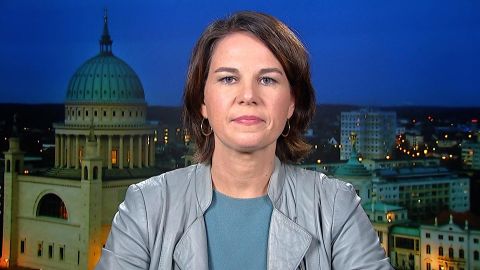Read Transcript EXPAND
CHRISTIANE AMANPOUR: What is top of mind for you as you witness what we have just said, two superpowers defeated by an insurgency in about 32 years, and the Americans’ place in that?
ROBERT GRENIER, FORMER CIA OFFICIAL: Well, what I think of is the eight hours of discussion that I had over two days with Mullah Osmani, who was the number two figure in the Taliban at that time, where I explained to him that, unless he handed over bin Laden and dismantled al Qaeda, that the Americans were going to come and that he was going to pay a very serious price. He predicted at the time that if we did that we would meet the same fate as the Soviets. And I think, overall, he was maybe closer to being right certainly than I was.
AMANPOUR: It really is extraordinary, actually, to put it in that frame, because I guess I want to ask you, having spent so much time there, having seen so much of the military components spend so much time there, the NGOs, what has been achieved, would you say, Robert?
GRENIER: Well, I think that the greatest achievements have been social and economic, I mean, that the Afghanistan of today bears, fortunately, relatively little resemblance to the Afghanistan of 2001, in terms of economic development, in terms of social development, in terms of liberties for women, education overall, and particularly for women, infant mortality. You could go down the list, and there has been tremendous progress both because and, in some cases, perhaps in spite of, the U.S. and the international involvement there.
AMANPOUR: So, Ashley, you know that firsthand because you spent many years actually conversing, interviewing, talking with the Taliban in the parts that they held even throughout the last 20 years. Do you believe what they’re saying that they will be somehow somewhat different? Or all these things that Robert has said, all the things that we have reported, are they at risk right now, particularly with the women, with the freedoms that have been gained over the last two decades?
ASHLEY JACKSON, CO-DIRECTOR, CENTRE FOR THE STUDY OF ARMED GROUPS: Well, there’s no up-and-down answer to that. I think we have heard the Taliban leadership make overtures, saying that girls will be allowed to go to school. There have also been contradictory statements about the restrictions that will be placed on women. The movement itself, I think, is savvier than it was in the 1990s. They know how to better communicate, how to deal with the international community. But they also are walking into an Afghanistan, as Robert said, that has schools and clinics and a level of development and industry and economy that simply wasn’t there in the 1990s. And the Taliban doesn’t want to lose that. They want international legitimacy.
About This Episode EXPAND
Robert Grenier and Ashley Jackson; Annalena Baerbock; Michelle Singletary
LEARN MORE


